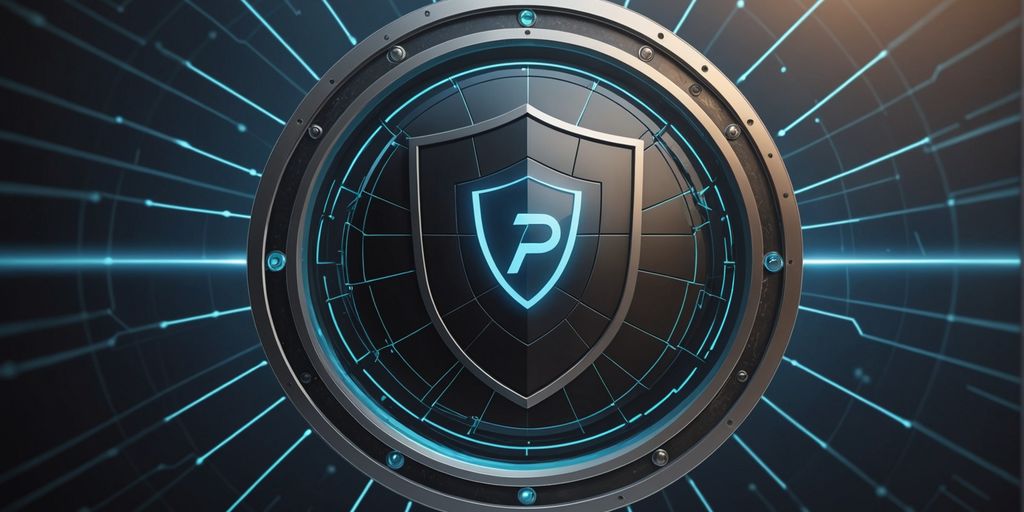Editor’s note: I personally have used several VPNs over the years, and my favorite is NordVPN. It seems to have the best download/upload speeds and very affordable. It also has built-in security features that are helpful.
In today’s digital age, online privacy and security have become more important than ever. One tool that can help protect your information is a VPN, or Virtual Private Network. But what exactly is a VPN, and do you really need one? This article will break down the basics, benefits, and types of VPNs. We’ll also guide you on how to choose the right one and set it up on different devices. By the end, you’ll have a clear understanding of whether a VPN is right for you.
Key Takeaways
- A VPN, or Virtual Private Network, helps protect your online privacy and security.
- VPNs can be used to access restricted content and protect your data on public Wi-Fi.
- There are different types of VPNs, including remote access, site-to-site, and mobile VPNs.
- Choosing the right VPN involves assessing your needs, comparing features, and reading reviews.
- While VPNs offer many benefits, they can also slow down your internet speed and have compatibility issues.
Understanding VPNs: The Basics
What is a VPN?
A VPN, or Virtual Private Network, is a tool that helps keep your online activities private. It does this by encrypting your internet traffic and sending it through a server in a different location. This makes it harder for others to see what you’re doing online.
How VPNs Work
When you use a VPN, your device connects to a server run by the VPN provider. This server then connects to the internet on your behalf. Because your data is encrypted, anyone trying to spy on your connection will only see scrambled information. This is especially useful when using public Wi-Fi.
Common Uses of VPNs
People use VPNs for many reasons:
- Privacy: Keeping your online activities hidden from prying eyes.
- Security: Protecting your data from hackers, especially on public networks.
- Access: Getting around geographic restrictions to view content from other countries.
Consider using a VPN: a virtual private network (VPN) encrypts your internet traffic and routes it through a server in a different location, making it harder for others to track your online activities.
Benefits of Using a VPN

Enhanced Security
Using a VPN can greatly improve your online security. It encrypts your internet connection, making it much harder for hackers to steal your data. This is especially useful when using public Wi-Fi networks, which are often less secure.
Privacy Protection
A VPN helps protect your privacy by hiding your IP address. This makes it difficult for websites and online services to track your online activities. You can browse the internet without worrying about being watched.
Access to Restricted Content
With a VPN, you can access content that is restricted in your region. This includes streaming services, websites, and other online resources. You can enjoy unlimited access to your favorite shows and websites, no matter where you are.
Using a VPN can open up a world of possibilities, from enhanced security to unrestricted access to content. It’s a simple tool that can make a big difference in your online experience.
Types of VPNs

Remote Access VPNs
Remote Access VPNs let users connect to a private network from a remote location. This is super handy for people working from home or on the go. It creates a secure tunnel between the user and the network, keeping data safe from prying eyes.
Site-to-Site VPNs
Site-to-Site VPNs are used to connect entire networks to each other. Imagine two offices in different cities needing to share resources. This type of VPN makes it possible. It’s like building a secure bridge between the two locations.
Mobile VPNs
Mobile VPNs are designed for devices that move around a lot, like smartphones and tablets. They keep the connection secure even when switching between different networks, like from Wi-Fi to mobile data. This ensures that the user’s data stays protected no matter where they are.
How to Choose the Right VPN

Assessing Your Needs
Before diving into the world of VPNs, it’s important to figure out what you need. Are you looking for better security, more privacy, or access to restricted content? Knowing your main goal will help you pick the right VPN. Make a list of your top priorities to keep things clear.
Comparing Features
Not all VPNs are the same. Some offer faster speeds, while others focus on security. Here’s a quick list of features to compare:
- Speed: How fast is the connection?
- Security: What kind of encryption do they use?
- Privacy: Do they keep logs of your activity?
- Ease of Use: Is the software user-friendly?
- Customer Support: How good is their support team?
Reading Reviews
Once you’ve narrowed down your options, it’s time to see what others are saying. Look for reviews from real users to get a sense of the pros and cons. Pay attention to common issues and praises. This can give you a better idea of what to expect.
Taking the time to read reviews can save you from future headaches. It’s always better to know what you’re getting into.
Setting Up a VPN
Choosing a VPN Provider
Picking the right VPN provider is the first step. Look for one that offers good security features and has a solid reputation. It’s also important to check if they have servers in the locations you need.
Installing VPN Software
Once you’ve chosen a provider, the next step is to install their software. This usually involves downloading an app or program and following the on-screen instructions. It’s a simple process that shouldn’t take more than a few minutes.
Configuring Settings
After installation, you’ll need to configure the settings. This can include choosing a server location, setting up a kill switch, and adjusting other security options. Make sure to update your settings to match your needs for the best performance.
Setting up a VPN might seem tricky at first, but with the right provider and a bit of patience, you’ll be up and running in no time.
VPNs for Different Devices
VPNs for Computers
When it comes to using a VPN on a computer, the process is pretty straightforward. Most VPN providers offer software that you can easily install on your desktop or laptop. This software helps protect your data and keep your online activities private. Whether you’re using a Windows PC or a Mac, there’s a VPN solution out there for you.
VPNs for Smartphones
Smartphones are just as vulnerable to online threats as computers. Installing a VPN on your phone can help secure your internet connection, especially when using public Wi-Fi. Many VPN providers have apps specifically designed for both Android and iOS devices. These apps are user-friendly and can be set up in just a few minutes.
VPNs for Tablets
Tablets are another type of device that can benefit from a VPN. Just like with smartphones, using a VPN on your tablet can help protect your personal information and keep your browsing activities private. Whether you have an iPad or an Android tablet, there are VPN apps available that are easy to install and use.
No matter what device you’re using, a VPN can help keep your data safe and your online activities private. It’s a simple step that can make a big difference in your online security.
Remember, whether you’re using a computer mouse or a touchscreen, a VPN can provide an extra layer of security for all your devices.
Potential Drawbacks of VPNs
While VPNs offer many advantages, they also come with some potential drawbacks that users should be aware of. One of the main issues is speed reduction. When you connect to a VPN, your internet traffic is routed through a server, which can slow down your connection. This is especially noticeable when streaming videos or playing online games.
Another concern is compatibility issues. Not all devices or applications work seamlessly with VPNs. Some websites may block VPN traffic, making it difficult to access certain content. Additionally, using a VPN can sometimes lead to software errors, which can be frustrating for users trying to maintain a smooth online experience.
Here’s a quick overview of the potential drawbacks:
- Speed Reduction: Slower internet speeds due to routing.
- Compatibility Issues: Not all devices or apps work well with VPNs.
- Software Errors: Technical glitches can occur.
It’s important to weigh these drawbacks against the benefits of using a VPN to determine if it’s the right choice for you.
VPNs and Online Privacy
When it comes to online privacy, VPNs play a crucial role. They help keep your data safe from prying eyes by encrypting your internet connection. This means that your online activities are hidden from hackers, ISPs, and even government agencies.
Here’s how VPNs protect your data:
- Encryption: VPNs use strong encryption methods to scramble your data, making it unreadable to anyone who might intercept it.
- IP Address Masking: By connecting to a VPN server, your real IP address is hidden, which helps maintain your anonymity online.
- Secure Connections: VPNs create a secure tunnel for your data, ensuring that it travels safely across the internet.
| Feature | Description |
|---|---|
| Data Encryption | Scrambles your data to protect it from snoopers. |
| IP Address Hiding | Masks your real IP address for anonymity. |
| Secure Tunneling | Creates a safe path for your data to travel. |
Using a VPN is a smart way to enhance your online privacy and keep your personal information secure.
In addition to protecting your data, VPNs also help you avoid tracking by websites and advertisers. This means you can browse the internet without being followed around by ads or having your information sold. Overall, VPNs are a valuable tool for anyone looking to stay private and secure while surfing the web.
VPNs for Business Use
Securing Remote Work
In today’s world, many people work from home or other places outside the office. A VPN helps keep their work safe by creating a secure connection to the company’s network. This means that even if someone is using public Wi-Fi, their data stays protected. Using a VPN is like having a private tunnel for your information.
Protecting Business Data
Businesses have a lot of important information that they need to keep safe. A VPN can help protect this data from hackers and other threats. By encrypting the data, a VPN makes it much harder for anyone to steal or see it. This is especially important for companies that handle sensitive information, like customer details or financial records.
Choosing a Business VPN
When picking a VPN for business use, it’s important to consider a few things:
- Security Features: Look for strong encryption and other security measures.
- Ease of Use: The VPN should be easy for employees to use without needing a lot of technical knowledge.
- Compatibility: Make sure the VPN works with all the devices your employees use, like refurbished laptops, used desktops, and computer monitors.
- Customer Support: Good support can help solve any problems quickly.
A good VPN can make a big difference in keeping a business’s data safe and secure.
Using a VPN can help businesses keep their data safe, protect their employees’ privacy, and ensure that their work stays secure, no matter where they are.
Free vs. Paid VPNs
When deciding between free and paid VPNs, it’s important to understand the differences. Free VPNs can be tempting because they don’t cost anything, but they often come with limitations. These can include slower speeds, fewer server options, and limited data usage.
Pros and Cons of Free VPNs
Free VPNs have their advantages, especially for those who only need occasional use. However, they often have drawbacks that can affect your experience:
- Limited bandwidth
- Fewer server locations
- Potential security risks
- Advertisements
Benefits of Paid VPNs
Paid VPNs usually offer more features and better performance. Here are some benefits:
- Faster speeds
- More server locations
- Better security features
- No ads
Making the Right Choice
Choosing between a free and paid VPN depends on your needs. If you need a VPN for basic tasks, a free option might work. But for more reliable and secure access, a paid VPN is often the better choice.
When it comes to protecting your online activities, investing in a paid VPN can provide peace of mind and better performance.
Troubleshooting Common VPN Issues

Connection Problems
Sometimes, VPN connections can be tricky. If you can’t connect, first check your internet. Make sure it’s working. If it is, try restarting your device. Also, check if your VPN software needs an update. If all else fails, contact your VPN provider for help.
Slow Speeds
A common issue with VPNs is slow speeds. This can happen if the server you’re using is far away. Try switching to a closer server. Also, close any apps or tabs that might be using a lot of data. If you’re still having trouble, your internet speed might be the problem.
Software Errors
Software errors can be a pain. If your VPN app crashes or won’t open, try reinstalling it. Make sure your device’s operating system is up to date. Sometimes, other software on your device can cause conflicts. Disable any unnecessary programs and see if that helps.
Omaha Computing Solutions provides a guide on securing Windows 11. Topics include Windows Hello, VPN services, password manager, and backup solutions.
Wrapping It Up
In today’s digital world, using a VPN can be a smart move to keep your online activities private and secure. Whether you’re browsing the web at home or using public Wi-Fi, a VPN helps protect your personal information from prying eyes. It’s not just for tech experts; anyone can use it with ease. So, if you value your privacy and want to stay safe online, a VPN might be just what you need. Give it a try and see how it can make your internet experience better.
Frequently Asked Questions
What is a VPN?
A VPN, or Virtual Private Network, is a tool that helps keep your online activity private and secure by creating a protected connection over the internet.
How does a VPN work?
A VPN works by routing your internet connection through a server, which hides your IP address and encrypts your data, making it hard for others to see what you’re doing online.
Why should I use a VPN?
Using a VPN can help protect your personal information, keep your online activities private, and allow you to access content that might be restricted in your area.
Are there different types of VPNs?
Yes, there are several types of VPNs, including remote access VPNs, site-to-site VPNs, and mobile VPNs. Each type serves different needs.
Can a VPN slow down my internet connection?
Sometimes, using a VPN can slow down your internet connection because your data has to travel through an extra server. However, many VPN providers work hard to minimize this slowdown.
Is it legal to use a VPN?
In most countries, using a VPN is legal. However, it’s important to use it responsibly and follow the laws of your country.
How do I choose the right VPN for me?
To choose the right VPN, consider your needs, compare features of different VPNs, read reviews, and make sure the VPN has good security and privacy protections.
Can I use a VPN on my smartphone?
Yes, you can use a VPN on your smartphone. Many VPN providers offer apps that are easy to install and use on mobile devices.








